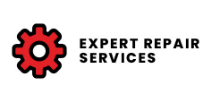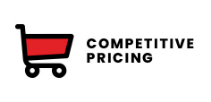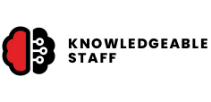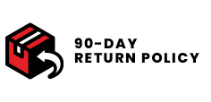Accreditation
Scales Plus is ISO/IEC 17025:2017 accredited through A2LA (American Association for Laboratory Accreditation). A2LA is a non-profit, non-governmental, public service membership society with a mission to provide independent, world-class accreditation programs that inspire confidence in the quality of services and acceptance of results from accredited organizations. View our certificate and scope here.
Calibration reports shall not be reproduced, except in full, without the permission of Scales Plus. Results relate only to the item calibrated.
Uncertainty
Estimated expanded uncertainty will be expressed at approximately the 95% confidence level, usually using a coverage factor of k=2. Unless otherwise specified the decision rule is simple acceptance. Pass: Error is within or equal to the tolerance limit. Fail: Error is outside the tolerance limit. Results are raw data and are not compensated for uncertainty. Typical factors included in the reported measurement uncertainty are repeatability of the device estimated from the resolution of the device, tolerance and stability of the test weights used for the calibration, rounding from the resolution of the device, repeatability and reproducibility of calibration technicians, and where applicable environmental factors will be included. Unless otherwise specified the calibration interval will be set at 1 year.
Procedure
The device will be tested at between 3 to 5 weight drops across the range of capacity of the device. Where applicable a shift test will also be performed. Unless otherwise specified the standard tolerances are as follows:
Closest Category from NIST Handbook 44 Table 6 or Table 1.1.1
What does a ACRED-C-1000 service entail?
This service is to provide a calibration report for medium to high capacity scales. A trained technician will setup or confirm that the scale is setup correctly and then perform a specific test with traceable calibration weights.
Where applicable the test will involve a shift test done in each corner/quadrant of the scale and then three to five load tests in the center of the base. An example of the test points could be 50 lbs, 250 lbs, 500 lbs, 750 lbs, and 1000 lbs. At this point the technician will ensure that the scale is performing within the correct tolerance and if not it will be calibrated and tested again. The end result will be that Scales Plus will then provide a recording of the test as found and as left for your quality assurance.
For more questions about our testing and calibration process please contact us. We can be reached at our main line 616-622-2100 or through our convenient live chat.
What is Scale Calibration?
The accuracy of a weighing scale can slip with time, often as a result of normal use, dust accumulation, or simply age—a process known as drift. Thus, Scale calibration is the act of verifying and adjusting a scale's accuracy using test standards of a known, documented weight. This ensures the scale is performing as it should and is accurate to the manufacturer's stated specifications.
Why is Scale Calibration important?
A scale or balance that is properly calibrated will produce the most accurate and repeatable results. This is especially important in commercial and research applications, where even the smallest weighing errors can result in lost time, productivity, and profits.
Can I get scale calibration on a scale I currently own?
Yes! Scales Plus offers on-site calibration services throughout the state of Michigan. Customers elsewhere in the U.S. can ship us their scales or balances for preventative maintenance and calibration. Our team of certified technicians will provide you with a traceable calibration report as proof that your weighing equipment is displaying accurate and consistent results.
Who needs an NIST-Traceable calibration report?
NIST-traceable calibration reports provide documented proof that the scale you purchased is in good working order and that the scale has been calibrated to meet or exceed the manufacturer's specifications. At Scales Plus, we use calibration weights that are certified by an accredited metrology lab at minimum, every two years and verified against other NIST weights. Certifications are typically required for mid-sized to large manufacturing facilities, laboratories, and any other industries that have strict quality systems.
How does this calibration service work with NTEP-approved scales?
Purchasing an NIST-Traceable calibration report for your new NTEP scale DOES NOT mean your scale is "placed into service". Many states require NTEP (legal-for-trade) scales to be placed into service by a licensed agent of the state's Weights and Measures Department, whether it be a state representative or a third-party technician that is licensed to place scales into service. Calibration must be performed when a scale is being placed into service. Our calibration service would be a secondary check of the scale as a verification that the scale is in good working order before you call to have the scale placed into service.
For more information check out our blog.
What is the Difference Between a Traceable Calibration and a Place-in-Service Test?















